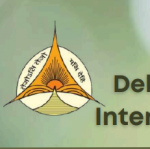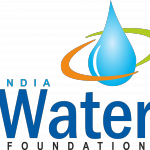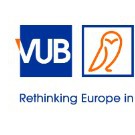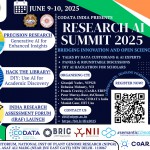UNU-CRIS Nature, Climate and Health Cluster joins the Dialogue in Belgium and India on Supporting Open Science and Innovation and Addressing the AI-Integration Platforms and Pathways
First held in Belgium
Advancing responsible research assessment for funders
in the European digital space : A dialogue on ethics, integrity, and open infrastructure
organized by the Coalition for Advancing Research Assessment (CoARA), European Commission, European Network for Research Integrity Offices (ENRIO), Ethical Data Initiative (EDI) and TUM Think Tank, brought together a diverse spectrum of European stakeholders to address the evolving landscape of research assessment in the age of artificial intelligence. Representing UNU-CRIS and as a member of the CoDATA IDPC, Nidhi Nagabhatla contributed critical reflections on the shifting responsibilities of funders in research assessment reform, particularly in the context of developing a European Strategy for AI in Science, alongside co-panelist Mihalis Kritikos from the European Commission’s EGE.
The event underscored the growing imperative for accountability, reproducibility, and ethical oversight in digital research ecosystems. Discussions centered on the integration of AI into research funding mechanisms, emphasizing ethical compliance, data governance, epistemic integrity, and the necessity of open, interoperable infrastructures to ensure fair and transparent evaluation practices.
She highlighted the development of a conceptual architecture for responsible research assessment frameworks built on open infrastructures, with strategic and technical guidance for both research-performing and funding organizations. The coalition’s collaborative approach, involving over 700 member institutions, aims to drive systemic change in research assessment by piloting new criteria, fostering mutual learning, and aligning with broader European and global initiatives for research integrity and open science.
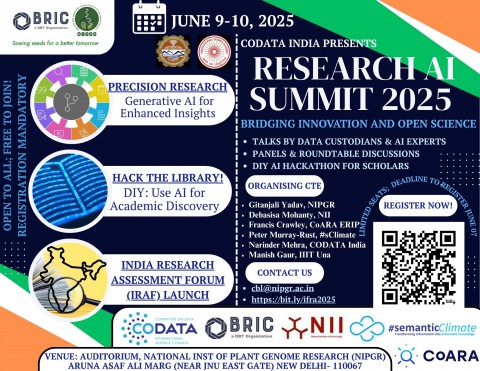
Second held in India
UNU CRIS provides insight to “The Research AI Summit: Bridging Innovation & Open Science,” June 9-10, 2025, held in India in collaboration with CODATA India and iBRIC-NII. .
Nidhi Nagabhatla, as a member of the International Data Policy Committee (IDPC) of CODATA, joined as a panelist She reflected on how AI technologies are rapidly transforming research workflows—from literature synthesis and data analysis to collaborative authorship and peer review. While AI accelerates discovery and broadens participation, it also raises new ethical challenges. Institutions and funders must develop guidelines for responsible AI integration, ensuring that automation supports, rather than undermines, research integrity, accountability, and diversity. The future of research assessment in the digital age depends on sustained collaboration among funders, institutions, researchers, and infrastructure providers. We need to outline action plans and guidelines that stress the importance of community-driven governance, transparent communication, and ongoing evaluation of assessment practices. This collective approach is essential for building resilient systems that can adapt to technological advances and evolving societal expectations. Her reflections underscored the panel’s central message: responsible, open, and AI-enabled research assessment is a shared endeavor, demanding both visionary leadership and practical, inclusive infrastructure at institutional, national, and international levels.
The summit also brought together National data custodians, funders and global AI experts, towards new collaborations from the Industry, boosting skills of research scholars on AI-Assisted Precision Research, as envisaged under India’ sDBT’s BioE3 Policy and NEP 2020 policy priorities.

